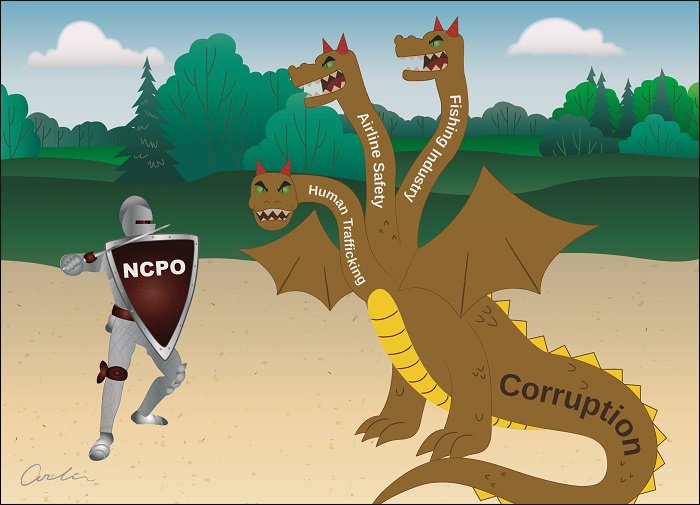Opinion: NCPO battles Thai hydra of corruption

PHUKET: The National Council for Peace and Order (NCPO) has taken swift action to show the European Union (EU) that it intends to do more to tackle the problem of illegal, unreported and unregulated (IUU) fishing practices in Thailand and its territorial waters.
Whether or not real order can be imposed within just six months on the huge hydra of corruption and human misery that is the Thai fishing industry seems doubtful, but is worth a try.
Issues of democratic development aside, it is not difficult to feel pity for the challenges faced by Prime Minister Gen Prayut Chan-o-cha and his fellow NCPO members, as the international community continues to put more and more pressure on the country to get its act together – or suffer the consequences.
News of the EU’s yellow card on the IUU issue comes on the heels of a series of widely-publicized embarrassments for our Land of Smiles.
In February, the International Civil Aviation Organization that oversees safety in international air transport, issued a warning about safety concerns with Thai commercial carriers after its audit of the Department of Civil Aviation (DCA), leading several countries to restrict flights from Thai carriers to their countries.
That embarrassment was followed by the uncovering of a bone-chilling international human rights issue earlier this month, when authorities exhumed the remains of dozens of ethnic Rohingya and Bangladeshi human-trafficking victims from a jungle prison camp in Songkhla’s Sadao District, on the border of Malaysia.
One might expect an unelected, highly-nationalistic governing body like the NCPO to react in an aggressively defensive fashion, as one former elected premier, Thaksin Shinawatra, did with the International Monetary Fund in the aftermath of the so-called ‘Tom Yum Kung’ financial collapse that started in 1997.
Much to the contrary, the NCPO has accepted most international criticism as justified, taking concrete steps to address the issues – almost all of which are legacies of Thailand’s so-called ‘culture of corruption’, which dates back decades and has proven impervious to those who are officially in charge here at any given time.
In the case of the DCA, the NCPO admitted that changes were needed after years of neglect by a number of governments more interested in profiting from the expansion of the industry than keeping up with technical advances to ensure safety.
In the case of the ongoing Rohingya tragedy, the NCPO did not prevent media access or try to cover up the facts, but rather offered to host an unprecedented international summit on the issue, scheduled for May 29.
This action, which has drawn support from UN Secretary-General Ban Ki-moon, goes a long way to differentiate the military-led NCPO from its counterparts in Myanmar – the ultimate source of the Rohingya exodus problem – who have suggested that they will not be attending the summit.
Latest Thailand News
Follow The Thaiger on Google News:


























